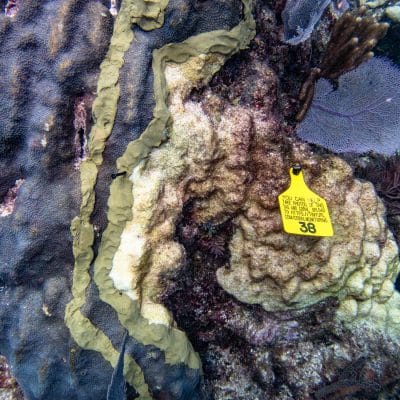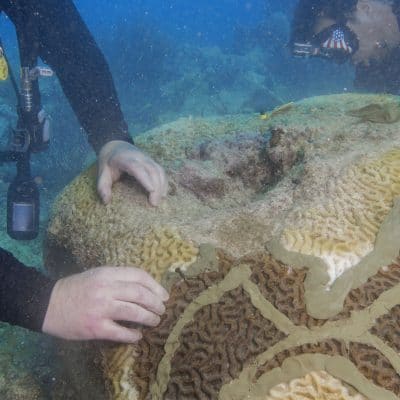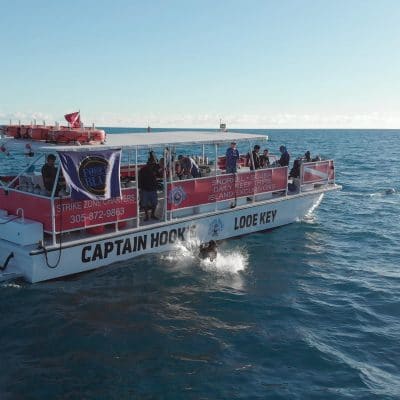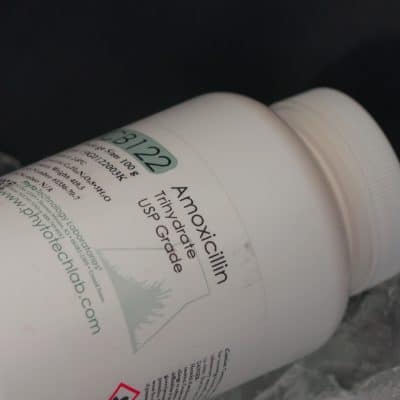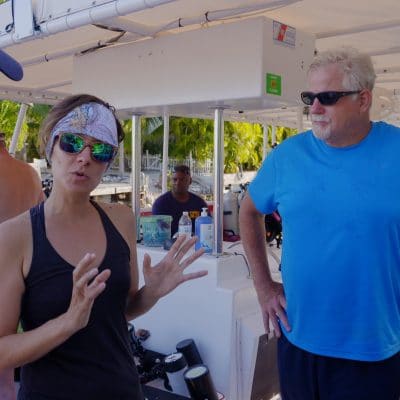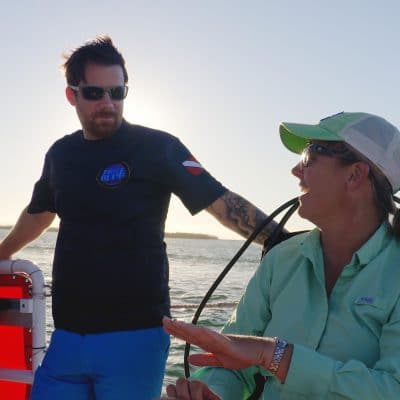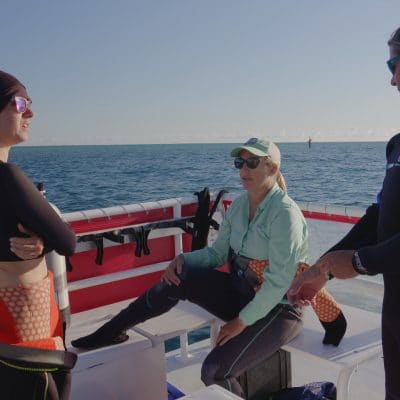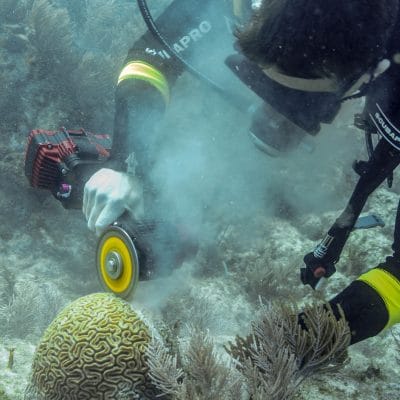Stony Coral Tissue Loss Disease Mission Reaches Half-Way Point
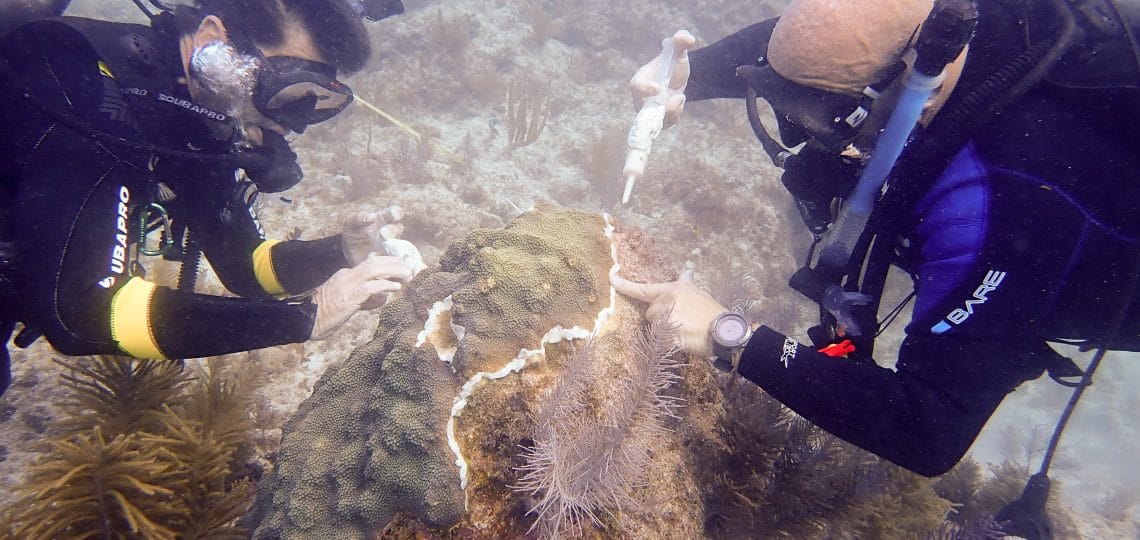
After delays brought on, first by the federal government shutdown and then some rough seas, FORCE BLUE team members, working alongside scientists from Nova Southeastern University (NSU), successfully completed their 25th day of dive operations as part of the ongoing crusade to stop the spread of Stony Coral Tissue Loss Disease in the Florida Keys.
The 50-dive-day mission, which began in December 2018 and is being funded through the Florida Department of Environmental Protection (DEP), has seen the FORCE BLUE/NSU team treat infected coral colonies from Carysfort Reef in Key Largo all the way down to Looe Key.
As coral diseases go, Stony Coral Tissue Loss Disease, which began to appear in the waters off southern Florida in 2014, is particularly devastating due to its large geographic range, extended duration, rapid progression, high rates of mortality and the number of species infected. In fact, it’s believed fully half of the 44 different species of coral indigenous to Florida are susceptible.
“The coral disease outbreak we’re facing here in Florida is unlike anything experienced anywhere in the world” said Sarah Fangman, Superintendent, Florida Keys National Marine Sanctuary. “That’s a pretty dramatic statement, but it’s completely true.”
FORCE BLUE and NSU divers have been applying two different treatments in their attempt to stop the disease from spreading. The first involves applying an adhesive antibiotic mix (Amoxicillin/CoreRX Base) directly to the corals’ disease margins using a syringe. The second, requires cutting “trenches” into the coral that are then filled with a chlorine/epoxy mixture to create “firebreaks” between the diseased and healthy tissue.
“The coral treatments provide a chance for us to extend the lives of these corals.” said FORCE BLUE veteran Tom Peck. “We may not save them all, but we’re doing our damnedest to save all we can.”
With a strong finish to February, the team has now treated over 1500 lesions on just under 500 pieces of coral, which has created renewed optimism, as voiced by the team’s lead scientist, NSU’s Karen Neely.
“I think what we’re doing here might impact our Florida reef system which is hope in and of itself. But I also think everything we’re doing is going to be picked up by people around the world. Not just in terms of the scientific solutions we’re finding, but in the creative mechanisms we’re using. Partnering with organizations you might not have thought of partnering with before. Finding those creative solutions, I think, is the step we need to conserve coral reefs around the world.”
